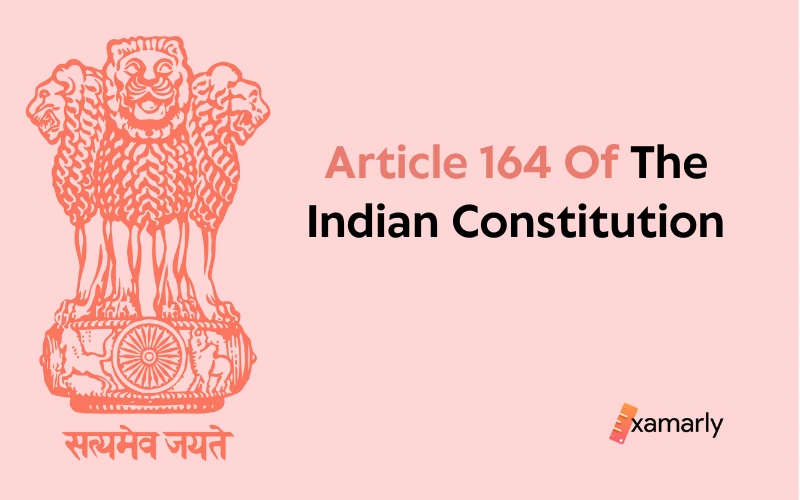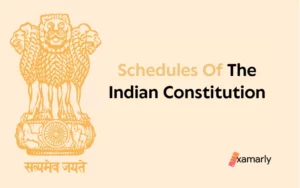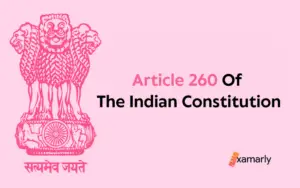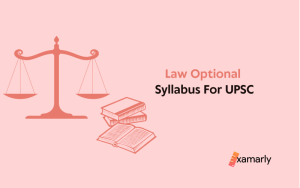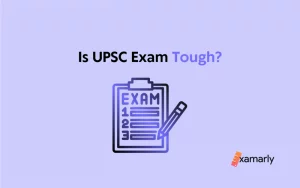Are you familiar with the Indian Constitution? Do you know about Article 164, what it entails and why it is important?
The Indian Constitution is the longest-written constitution in the world. It contains a set of fundamental principles which regulate how India is run as a nation.
The Chief Minister and the Council of Ministers are chosen according to Article 164 of the Indian Constitution. It also covers the ministers’ swearing-in ceremony and the unusual situation of non-legislative assembly members being appointed to the council of ministers.
When considering the executive branch of state government, Article 164 takes on a particularly significant role. To better understand its importance, we will have to examine its provisions in detail and determine its impact on the formation of India’s executive branch.
This article will give you an insight into what constitutes part of Article 164 and why it is so important within political circles.
- What Are The Provisions Under Article 164 Of The Indian Constitution?
- Circumstances In Which Article 164 Applies
- Landmark judgments
- Har Sharan Verma vs. Tribhuvan Narain Singh
- SR Chaudhuri vs. State Of Punjab
- B.R. Kapur vs. State Of Tamil Nadu
- Recent Instances Of Article 164
- Conclusion
- FAQs On Article 164
- What Article 164 Of The Constitution Deals With?
- Which Amendment Has Revised Article 164?
- What is covered under Article 164(4)?
- Who Served As India's First Chief Minister?
- What Is The Intent Of Clause 4 Of Article 164?
- In Which Article Is The Chief Minister Mentioned?
- Who Is Responsible For Appointing The Chief Minister?
- What Is The 2nd Schedule Of The Indian Constitution?
What Are The Provisions Under Article 164 Of The Indian Constitution?
It is essential to have a solid understanding of Article 164 in order to comprehend the authorities held by the executive branch and the scope of the discretionary power held by the Governor. The Constitutional Provisions of the said Article are as follows:
- The Governor will appoint the Chief Minister, and the other Ministers will be chosen based on the advice of the Chief Minister; all the Ministers will serve at the Governor’s pleasure:
With the caveat that each of the states of Odisha, Jharkhand, Madhya Pradesh, and Chhattisgarh shall have a Minister in charge of tribal welfare who may also oversee the welfare of the Scheduled Castes and other underprivileged groups or perform any other duties.- (1A) The entire number of ministers serving in a state’s Council of Ministers, including the state’s Chief Minister, may not surpass 15 percent of the overall members serving in that state’s Legislative Assembly:
With the proviso that the minimum number of ministers in a state cannot be lower than twelve, including the Chief Minister:
As an additional proviso, if any State’s total number of Ministers (including the Chief Minister in the Council of Ministers) at the start of the Constitution (Ninety-first Amendment) Act, 2003 is greater than the aforementioned 15% or the number specified in the first proviso, as the case may be, within six months following the date the President may by public notification appoint, the total number of Ministers in that State shall be brought into line with the provisions of this clause. - (1B) Whoever is disqualified from serving as a member of the Legislative Assembly of a State or either House of the Legislature of a State having Legislative Council under paragraph 2 of the Tenth Schedule will likewise be prohibited from serving as a Minister designated under clause (1). That member will be disqualified for the time between the date of his disqualification and the end of his term as a member or, if he runs for an election to the Legislative Assembly of a State or either House of the Legislature of a State with a Legislative Council before the end of that time, until the date he is declared elected, whichever comes first.
- (1A) The entire number of ministers serving in a state’s Council of Ministers, including the state’s Chief Minister, may not surpass 15 percent of the overall members serving in that state’s Legislative Assembly:
- The State’s Legislative Assembly is the body to whom the Council of Ministers is collectively responsible.
- Prior to beginning his duties as a Minister, the Governor will give him the oaths of office and the oath of secrecy in the formats specified in the Third Schedule of the Indian Constitution.
- A Minister who is not a member of the State Legislature for a stretch of six months in a row forfeits his or her position as a Minister at the end of that stretch.
- Ministers shall receive such salaries and allowances as the State Legislature may from time to time by law determine, and in the absence of such a determination, the salaries and allowances of Ministers shall be as set forth in the 2nd Schedule of the Constitution of India.
Circumstances In Which Article 164 Applies
The qualifications for appointment as Chief Minister are not expressly stated in our Indian Constitution. According to Article 164, the Governor is the one who will be in charge of making the appointment for the position of Chief Minister. Also, this doesn’t give the Governor carte blanche to name anybody he wants as the Chief Minister of any state or Union Territory.
The language that is employed in Article 164 creates the idea that the Governor possesses the utmost control over the State Government. One example may be found in Article 164, which stipulates that a minister’s tenure in office is contingent on the pleasure of the Governor. In light of the foregoing, it is clear that the Governor possesses enormous authority over the subject matter under Article 164.
According to Article 164 and Article 75(5) of the Indian Constitution, a person who serves as Prime Minister or Chief Minister—even if they are not MPs or MLAs—must not be prevented from participating in any legislative activity for the duration of their appointment.
In addition, the duties and authorities of the executive arm of the government are laid out in Article 164 of the constitution.
Landmark judgments
Har Sharan Verma vs. Tribhuvan Narain Singh
It was debated by the Constitutional Division of the Supreme Court in the case of Har Sharan Verma vs. Tribhuvan Narain Singh (1971) as to whether or not an individual who is not a state legislator can be nominated as Chief Minister.
In this particular instance, the selection of Tribhuvan Narain Singh as the Chief Minister of Uttar Pradesh was called into doubt due to the fact that at the time of his appointment, he did not belong to either house of the Legislature.
Har Sharan Verma argued in the High Court that Article 164 (1) of the Constitution makes it unlawful to nominate someone who is not a member of the legislature to the position of Chief Minister.
This line of reasoning was shot down by the Allahabad High Court, which ruled that the position of Chief Minister is equivalent to that of any other minister and that a Chief Minister can serve for a period of six months even if they are not a member of the Legislature.
SR Chaudhuri vs. State Of Punjab
When interpreting Article 164 in the case of SR Chaudhuri v. State of Punjab (2001), the Supreme Court articulated the rule that the constitutional provisions must be comprehended and clarified using an object-oriented approach.
A Constitution should not be interpreted in a restricted meaning at any point. Despite the generic nature of the words employed, it is important to comprehend their complete and true meaning in light of their actual context and the objectives for which they were intended.
The debate that took place in the Constituent Assembly, which was stated earlier in the ruling, made it very apparent that non-members entering the cabinet were only regarded as valid for a period of six months. During that time, members had to be elected in order for them to continue serving as ministers.
B.R. Kapur vs. State Of Tamil Nadu
In another important precedent, which was held in the case of B.R. Kapur vs. State of Tamil Nadu (2001), the majority of judges, when examining the question of a writ of quo warranto, decided that if a non-legislator could be appointed as a Chief Minister in accordance with Article 164 of the Indian Constitution, then that individual was required to meet the condition of membership in a legislature, as specified in Article 173 of the Indian Constitution. This
Recent Instances Of Article 164
Suvendu Adhikari defeated Mamata Banerjee in the assembly election in Nandigram during the West Bengal elections, which was the most recent incident (BJP candidate).
She declared that she will contest it and maintain her position as chief minister of West Bengal.
In the Constitution, Article 164 lays forth the requirements that must be met before a person can take an oath and become a minister.
According to Article 164(4), a minister, however, will no longer be a minister after the end of a six-month term during which he or she has not served in the state legislature. All of this indicates that Mamta Banerjee will have six months to successfully compete in a by-election from any Bengal constituency in order to retain the position of Chief Minister. Even when Mamta Banerjee took her oath of office as Chief Minister in 2011, the very first time she did so, she was already a member of Parliament because she did not run for the assembly.y election. Nevertheless, after several months Mamta Banerjee became victorious in the election for the seat of Bhabanipur.
Conclusion
The States are the other component of Indian federalism, and they are covered in PART VI of the Constitution. State-related provisions are covered in detail in articles 152-237. It encompasses the state’s executive, legislative, and judicial branches. The Council of Ministers (CoM) in each state is discussed under Articles 163 and 164 of the Constitution.
Article 164 addresses the appointment, terms, duties, qualifications, oaths for ministers, remuneration, and benefits of the Minister. 91st Amendment of the Constitution as well as the 94th Amendment of the Indian Constitution has revised the said Article.
FAQs On Article 164
What Article 164 Of The Constitution Deals With?
Article 164 of the Constitution of India is the component of the constitution that includes the constitutional directives that govern the relationship between the federal government (the Centre) and India’s territorial divisions (the States and the Union Territories). The Minister’s appointment, tenure of office, responsibilities, qualifications, oaths, compensation, and benefits are covered in the said Article.
Which Amendment Has Revised Article 164?
91st and 94th amendment has updated Article 164 of the Constitution of India.
What is covered under Article 164(4)?
At the conclusion of six months, a minister who has not served in the state legislature as a member shall no longer be a minister.
Who Served As India’s First Chief Minister?
Government Ballabh Pant served as India’s first chief minister.
What Is The Intent Of Clause 4 Of Article 164?
A person who holds the office of Chief Minister or Prime Minister but is not an MLA or MP is not forbidden from taking part in legislative proceedings while holding such office, according to Articles 164(4) and 75 (5).
In Which Article Is The Chief Minister Mentioned?
Article 164 of the constitution discusses the appointment of the Chief Minister as well as the other ministers.
Who Is Responsible For Appointing The Chief Minister?
The Governor is the one who makes the appointment of the Chief Minister, and the Governor also makes the appointments of the other ministers based on the Chief Minister’s recommendations.
What Is The 2nd Schedule Of The Indian Constitution?
The salaries, privileges, and allowances of the President, Governor of States, Supreme Court judges, High Court judges, and other government officials are spelled out in detail in Schedule 2 of the Indian Constitution.


